16 Best Hair Masks for Damaged Hair, According to Experts and Editors
Quick treatments for stronger strands.

While at-home keratin treatments, curling irons, protective styles, and hair dye might be key to good hair days, they can also be responsible for breakage, dryness, and split ends. But all hope isn't lost: the best hair masks for damaged hair can help repair and strengthen your strands. More hydrating than your daily conditioner, hair masks are loaded with nourishing ingredients that deeply moisturize the scalp and the hair cuticle.
Like your skincare routine, consistency with hair mask treatments is vital to reaping the benefits. Ready to add one to your wash day? Ahead, we tested dozens of hair masks on damaged hair (think: heat-damaged, color-treated, or in desperate need of a haircut) and chatted with experts to find the best hair masks for every hair type.
Best Hair Masks for Damaged Hair
- Best Hair Mask for Damaged Hair Overall: Roz Foundation Reparative Hair Mask
- Best Hair Mask for Damaged, Curly Hair: Cécred's Moisturizing Deep Conditioner
- Best Hair Mask for Damaged Hair and Split Ends: Kérastase Première Anti-Breakage Repairing Mask for Damaged Hair
- Best Overnight Hair Mask for Damaged Hair: Bumble and bumble While You Sleep Overnight Damage Repair Mask
- Best Hydrating Hair Mask for Damaged Hair: Alterna Caviar Anti-Aging Replenishing Moisture Masque
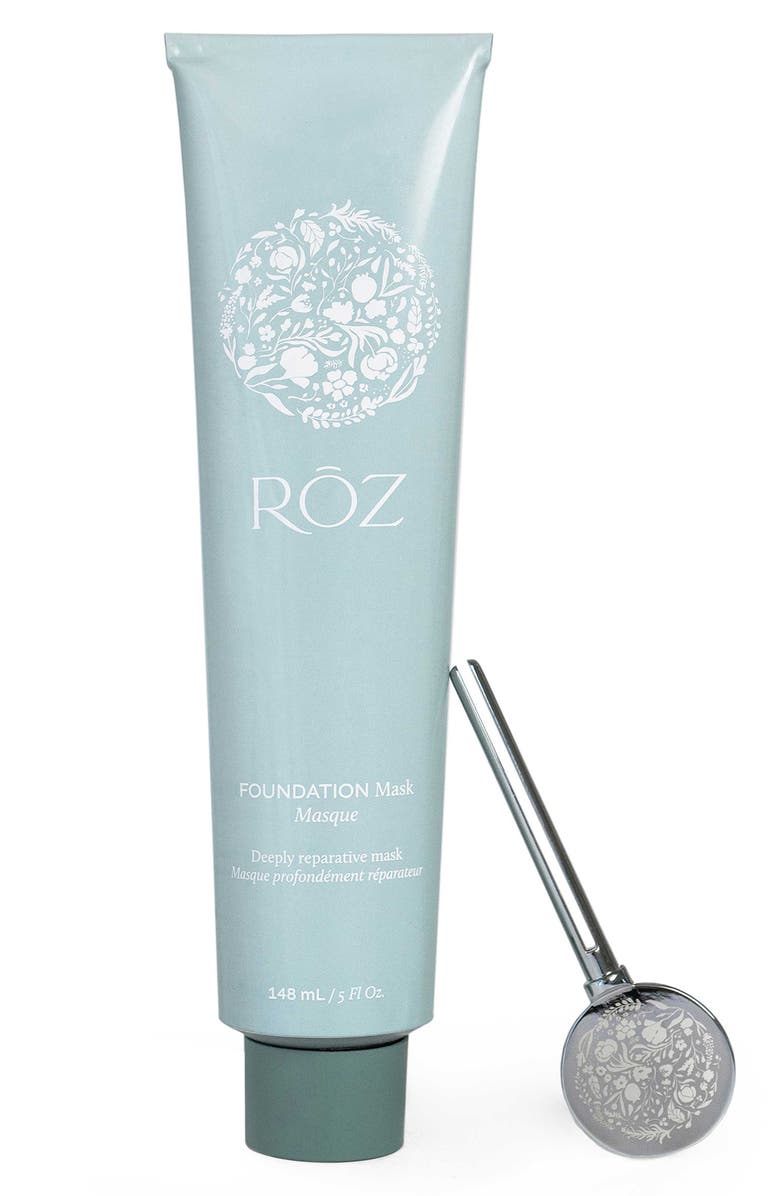
The reparative mask is clinically proven to reduce breakage by 31 percent after one use. Packed with super ingredients, it works hard to strengthen the hair cuticle and lock in all necessary moisture.
Key Ingredients: Vitamin E-rich oil, rosemary leaf extract
Hair Type: All hair types
How Often to Use: Once to twice a week
Fragrance Free: Yes
How Long to Leave In: Five to 10 minutes
What We Love: A little bit goes a long way
What We Don’t: In-shower application
Marie Claire Review: "I have been on a hair health journey for a year and a half. But over the past few months, I've been religious about masking once a week. I've tried dozens—but this one from celebrity hairstylist Mara Rozsak is my all-time favorite. It's lightweight and hydrating, leaves a gorgeous shine, and makes my split ends so much less noticeable. Technically you're only supposed to leave this on for 10 minutes, but I like to leave it on for hours." — Samantha Holender, Beauty Editor
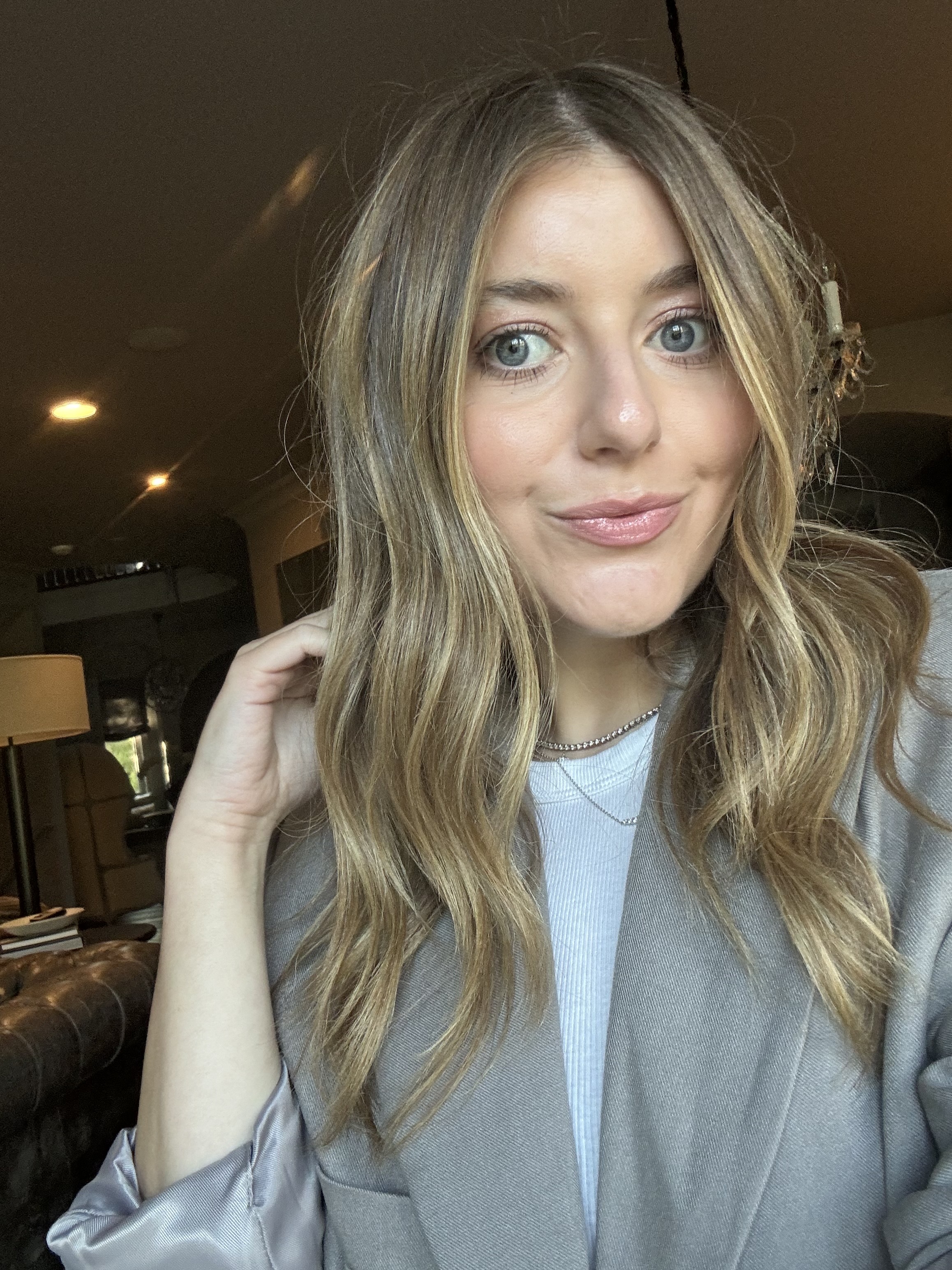
Samantha lets this soak in her hair all day for extra hydration.
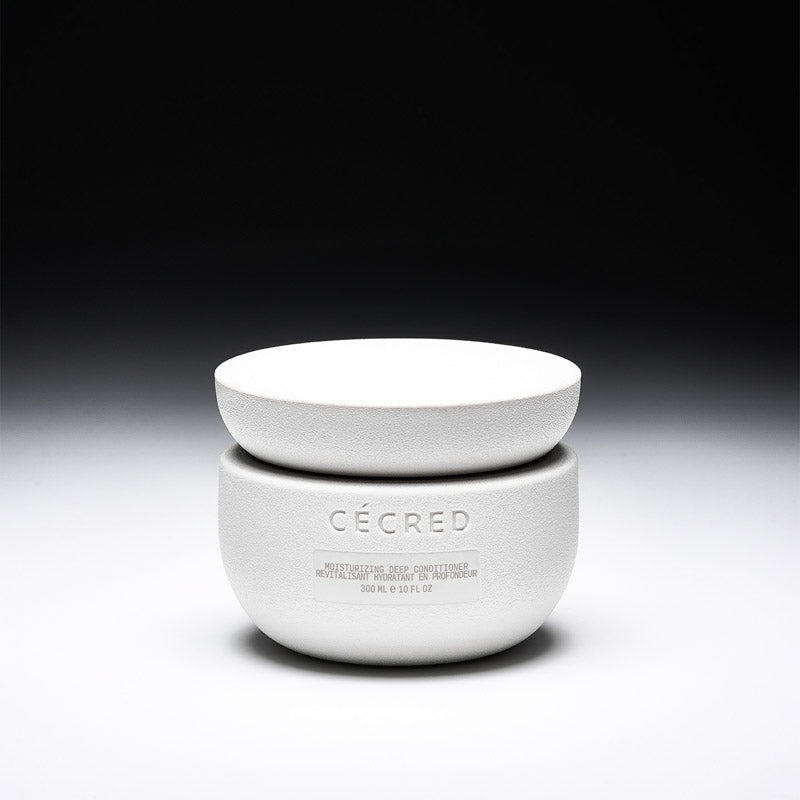
As you can imagine, the queen Bey, did not shy away from making some of the best hair products out there. Her new line, Cécred has fast become a favorite among beauty editors. Case in point: this deep conditioner. Packed with shea butter, it's designed to bring your hair back to life.
Key Ingredients: Shea butter and hyaluronic acid
Hair Type: Curls and coils
How Often to Use: Weekly
Fragrance Free: Yes
How Long to Leave In: As desired
What We Love: Great curl definition
What We Don’t: For curls, you'll get better results if you add heat
Marie Claire Review: "Cécred's Moisturizing Deep Conditioner is out of this world. I typically like to sit under a steamer or the dryer when I do a mask, but with this one, I only had it on for about 10 minutes in the shower and my hair was left noticeably more smooth and silky—but not weighed down. Plus, the brand's signature Temple Oud scent makes the experience all the more luxurious." — Kayla Greaves, Contributing Beauty Writer

Kayla finds that this mask gives her hair added shine.
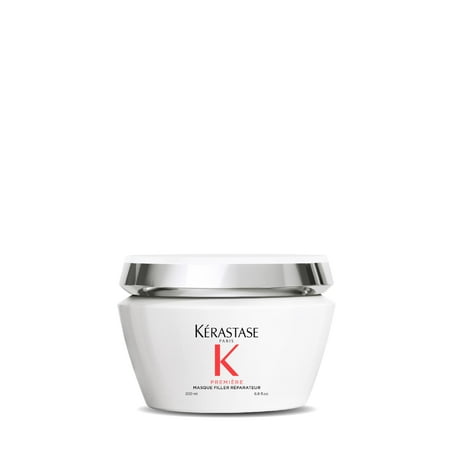
Per this product's name, it's formulated specifically for hair damaged by chemical treatments, heat, and/or dye. So, if split ends, brittle strands, dullness, and breakage are among your hair concerns, you'll want to add this to your shower set up, STAT. It gets to work quickly, and I promise you'll notice a difference in your hair's health after just one use.
Key Ingredients: Ceramides, plant sap
Hair Type: All hair types
How Often to Use: As conditioner or weekly
Fragrance Free: No
How Long to Leave In: Five to 35 minutes
What We Love: Easy to use; fast results; reverses damage; softening
What We Don’t: Price
Marie Claire's Review: “As someone who puts a lot of heat on my hair, I’m always searching for products that can help reduce breakage. I was so excited to try this mask. My final thoughts: this is magic in a jar. I left the shower with softer hair than ever with just one use. And after a quick blow dry, my hair looked and felt incredibly healthy. The silky smooth shine blew me away. Not to mention, my hair looked as if I had just received a fresh trim.” — Emma Aerin Becker, Freelance Beauty Writer
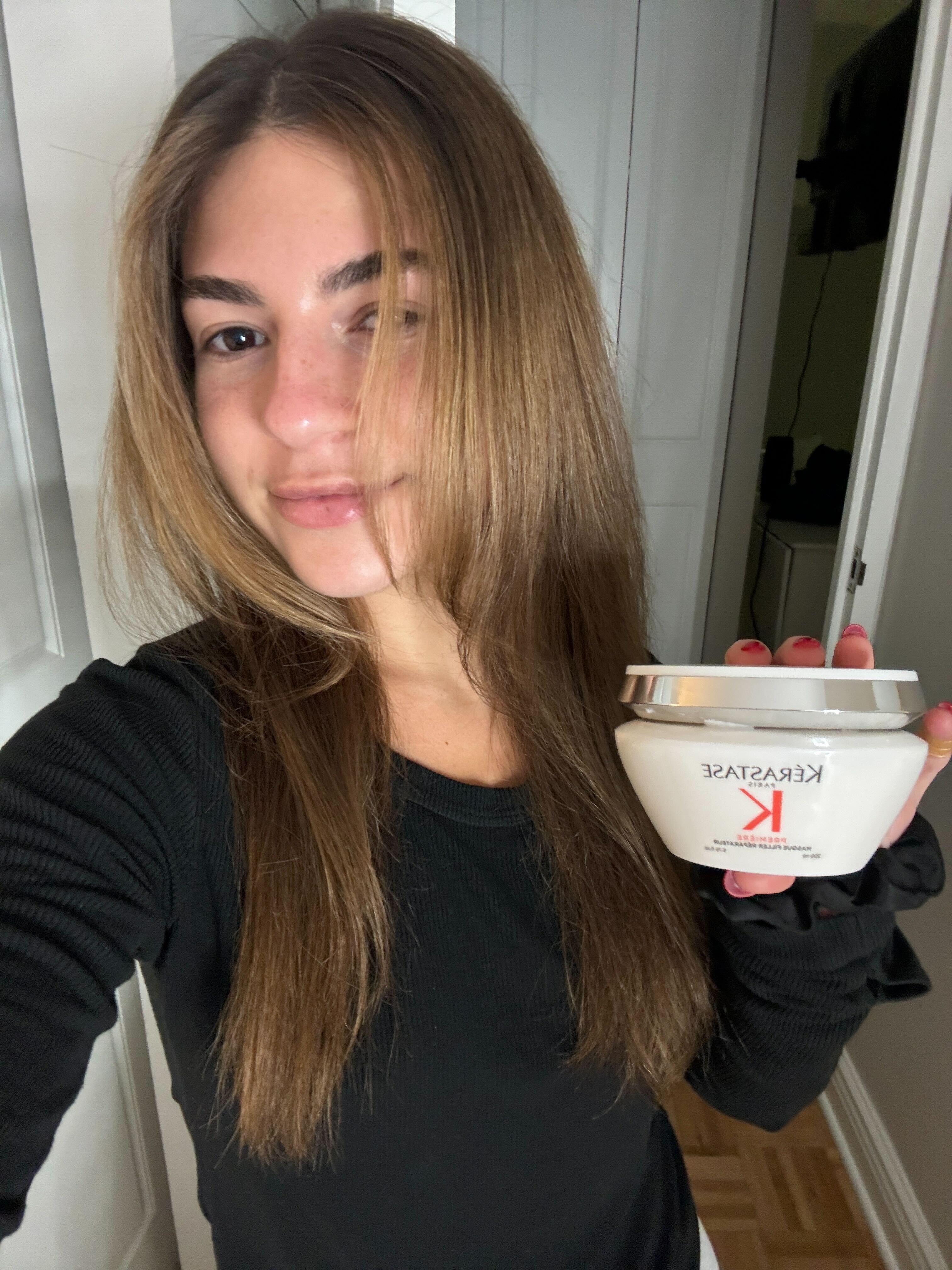
This mask might just let you push back your haircut.
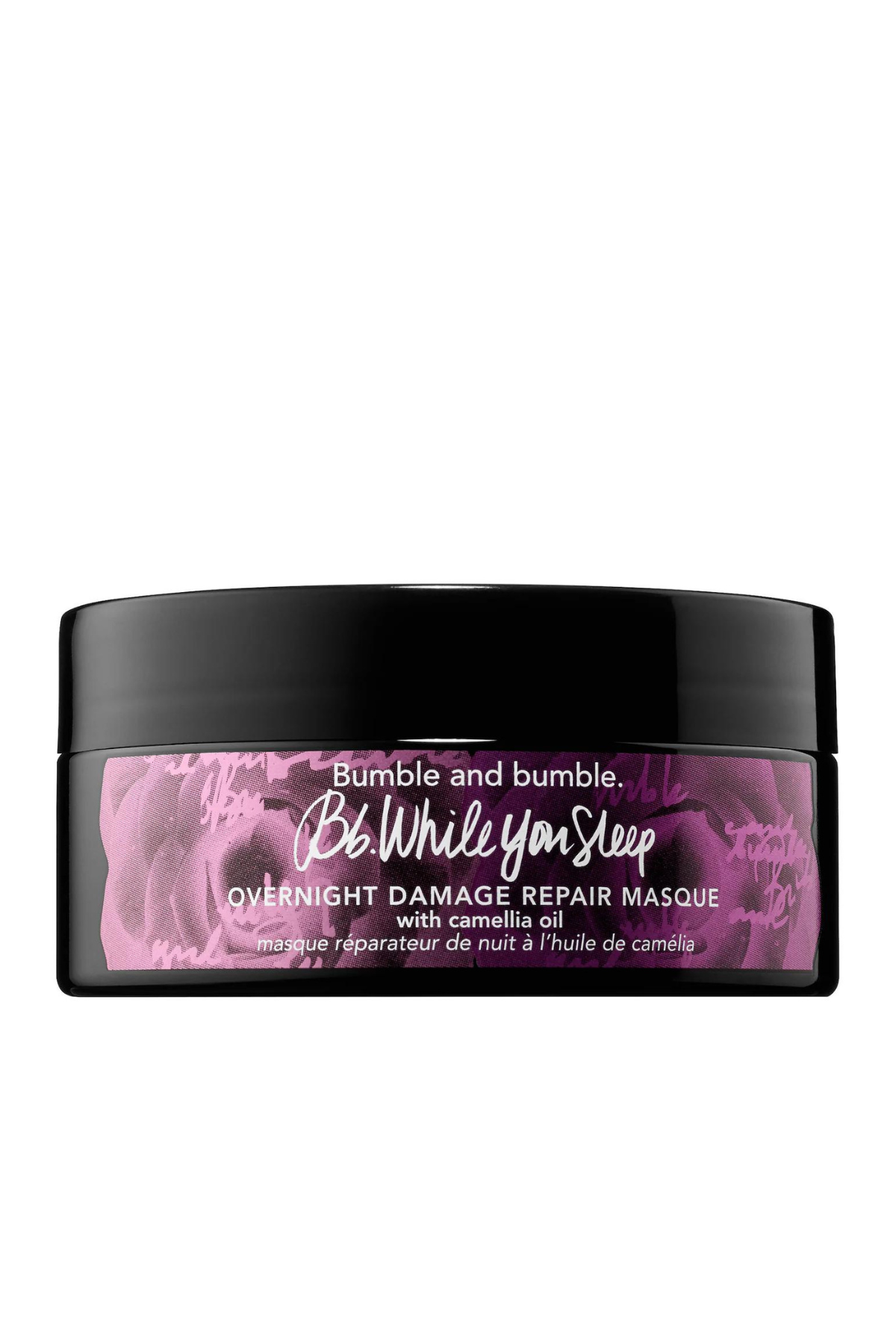
Want an intensive treatment while you catch up on sleep? All you have to do is apply a generous amount of product from root to tip before bed, secure your hair with a shower cap (or place a towel down on your pillow), and wait until morning to jump in the shower and see results. You’ll be mesmerized by how healthy your hair looks and feels. If you don’t have time for an overnight treatment, you can reap a decent amount of benefits by leaving this on for 20 minutes.
Key Ingredients: Camellia oil
Hair Type: All hair types
How Often to Use: Once or twice weekly
Fragrance Free: No
How Long to Leave In: Overnight
What We Love: Restores and repairs hair
What We Don’t: Strong scent
Marie Claire's Review: "Between my arsenal of styling products, daily brushing, and detangling, my curls experience a lot of wear and tear. This overnight mask is the lush solution to my dry strands. With every use, my curls are super hydrated the following morning and possess a shine that lasts up to three days." — Natasha Marsh, Contributing Beauty Writer.
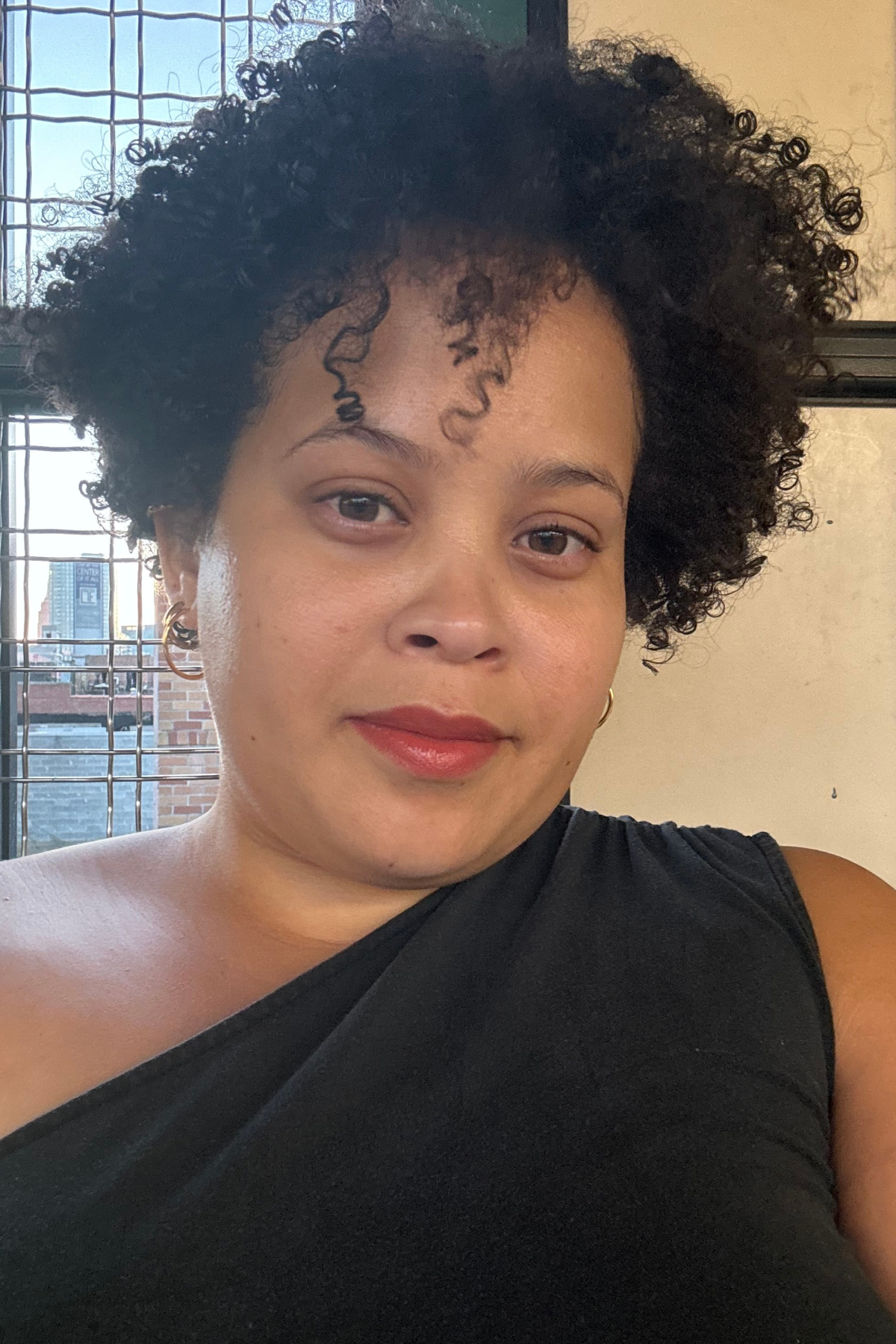
Natasha uses this mask to add definition back to her curls.
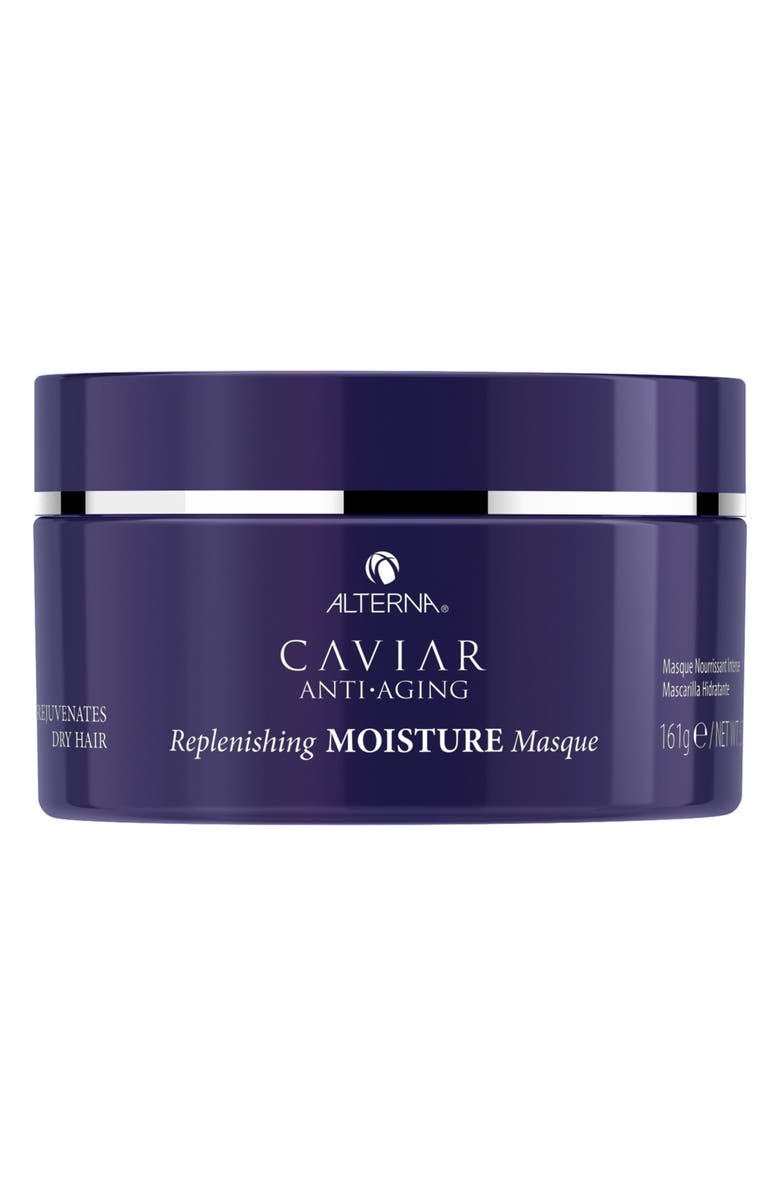
Specifically made with Age-Control Complex® to address natural, chemical, and environmental aging, this hair mask does wonders for extra-dry hair. It's a particularly great option for anyone dealing with color damage or split ends, as jojoba oil and sunflower seed oil help restore strength and shine to hair.
Key Ingredients: Sunflower seed oil and jojoba oil
Hair Type: All hair types
How Often to Use: Twice weekly
Fragrance Free: No
How Long to Leave In: Three minutes
What We Love: Great for color-treated hair, heat damage and dryness
What We Don’t: Thick formula
Marie Claire's Review: "I’m usually very wary about products listed for all hair types. I was skeptical about trying the new caviar mask, but I was pleasantly surprised at the results. I have never described my curls as silky, one of the main benefits of this mask, so I was genuinely shocked to see my curls achieve a soft-to-the-touch feel. Usually, by day two (post-wash), my curls feel brittle and are visibly very dry. But the mask restored the hydration from the root to end and also aided in my curl definition." — Natasha Marsh, Contributing Beauty Writer
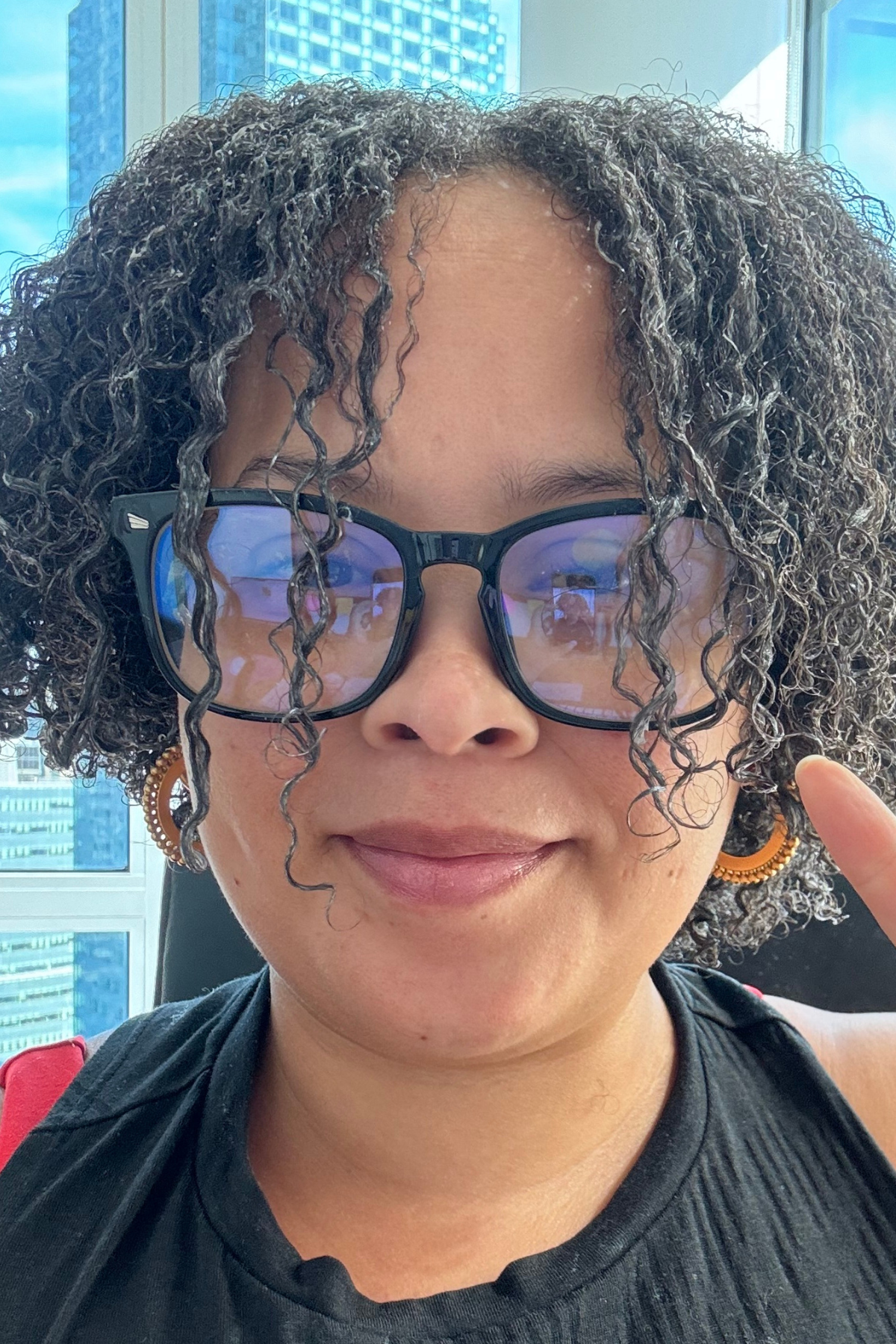
For a soft-to-the-touch feel, grab Alterna hair mask.
Other Hair Masks for Damaged Hair We Love
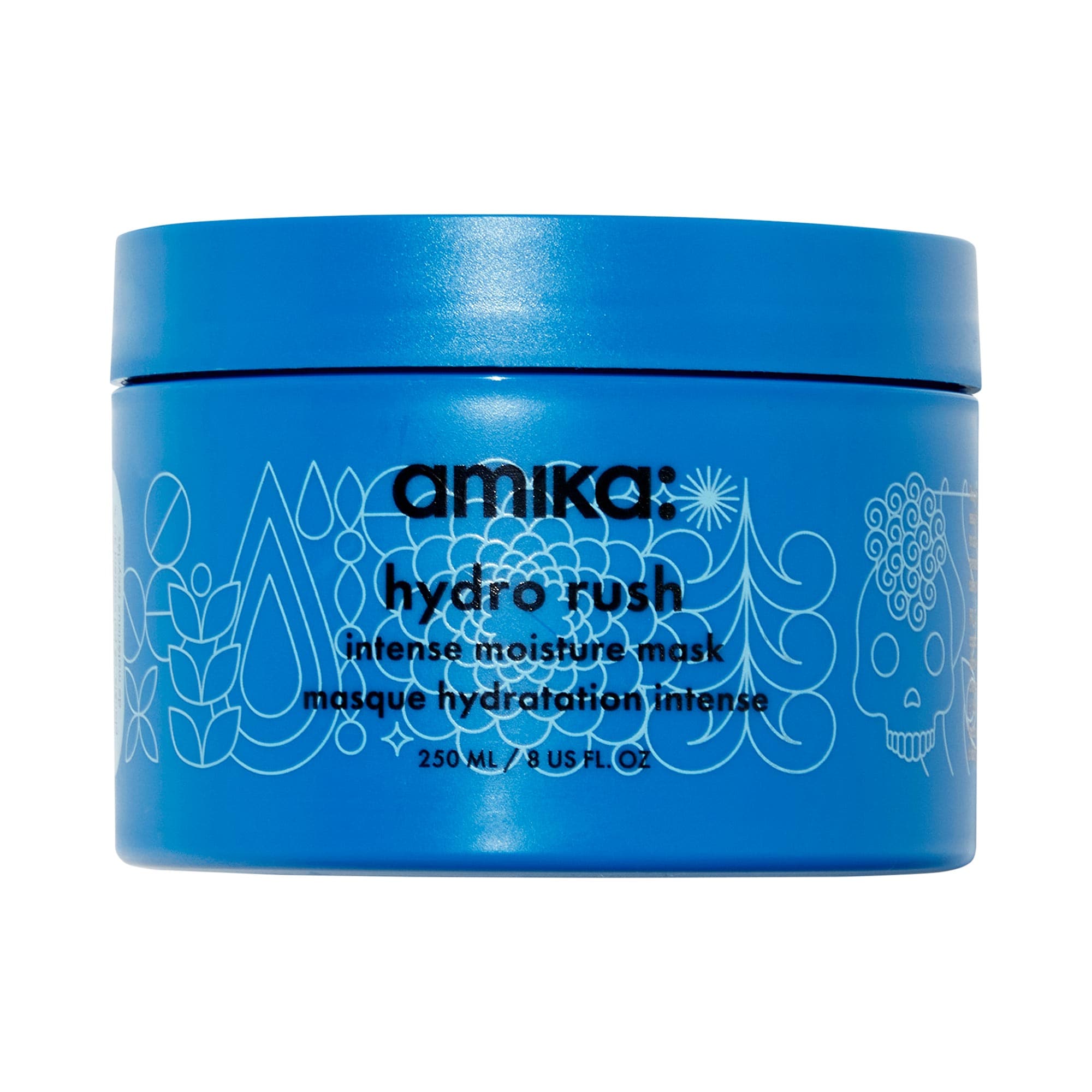
Dry, brittle texture is no match for Amika’s Hydro Rush Intense Moisture Mask. Thanks to the hyaluronic acid and sea buckthorn, vitamins and nutrients will surround your hair to help bring back shine and moisture. It's ideal for thick, coarse hair thanks to its rich texture—and is proven to leave hair hydrated for five days post-use.
Key Ingredients: Squalene, hyaluronic acid
Hair Type: Low porosity hair types 2C-4C
How Often to Use: Weekly
Fragrance Free: Yes
How Long to Leave In: Five minutes
What We Love: The thick texture does not leave residue behind
What We Don’t: So hydrating and creamy that those with fine hair might find it a bit much.
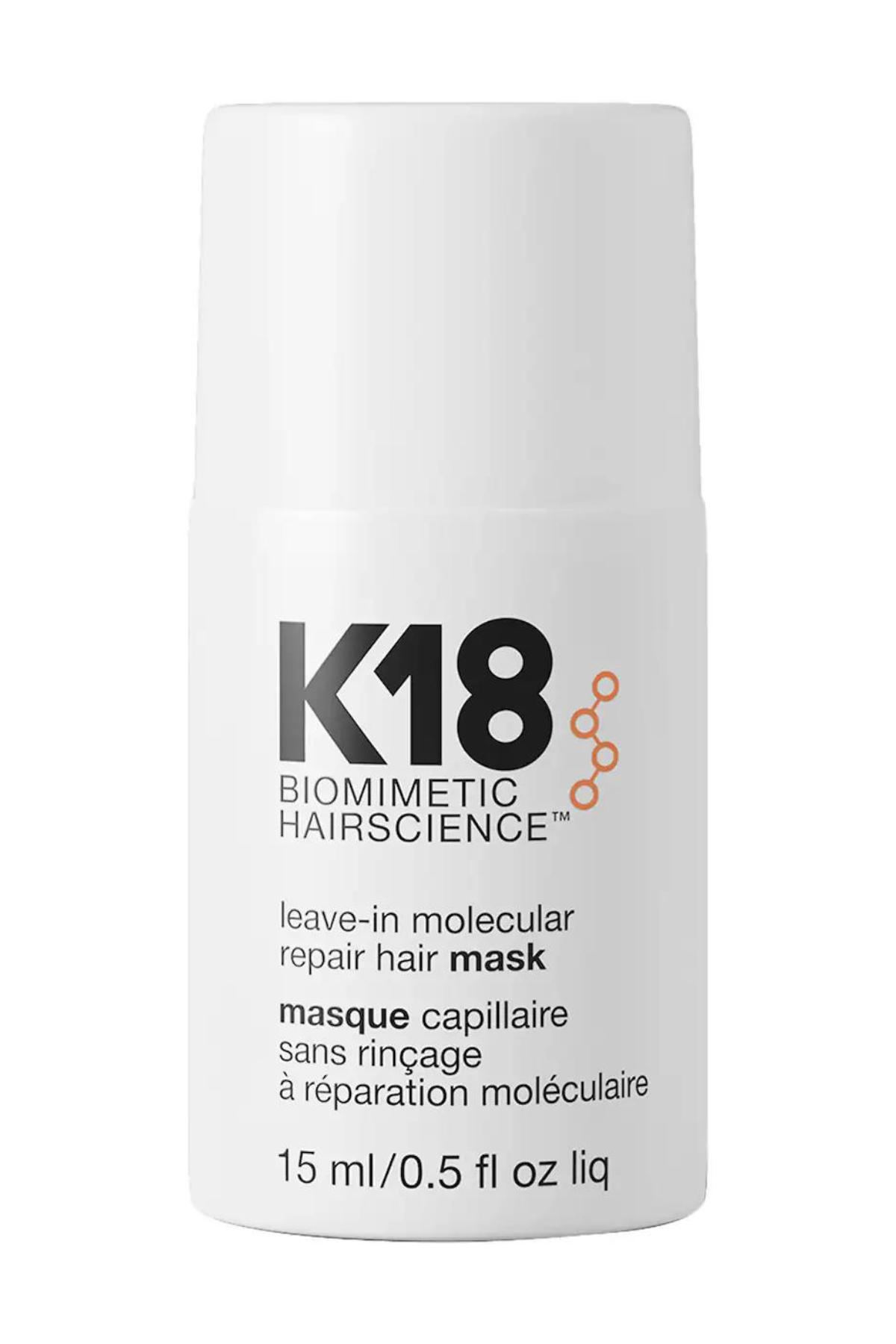
For damaged hair that can’t seem to rebound to a healthy state, K18 is a savior. It’s the A team, the all-star, and the MVP for distraught strands. I reach for this heavy hitter right after getting my hair bleached or after a week of straight heat styling because I’m blindly confident that my hair will be refreshed by its split-end bonding superpowers. Perhaps my favorite part about it, though, is that it’s leave-in-friendly. I don’t have to set aside a special time to soak and rinse—it fits perfectly into my routine.
Key Ingredients: Wheat protein
Hair Type: All
How Often to Use: Weekly
Fragrance Free: Yes
How Long to Leave In: Four minutes
What We Love: Heavy-duty repair; works on all hair types; doesn’t need to be washed out
What We Don’t: Expensive
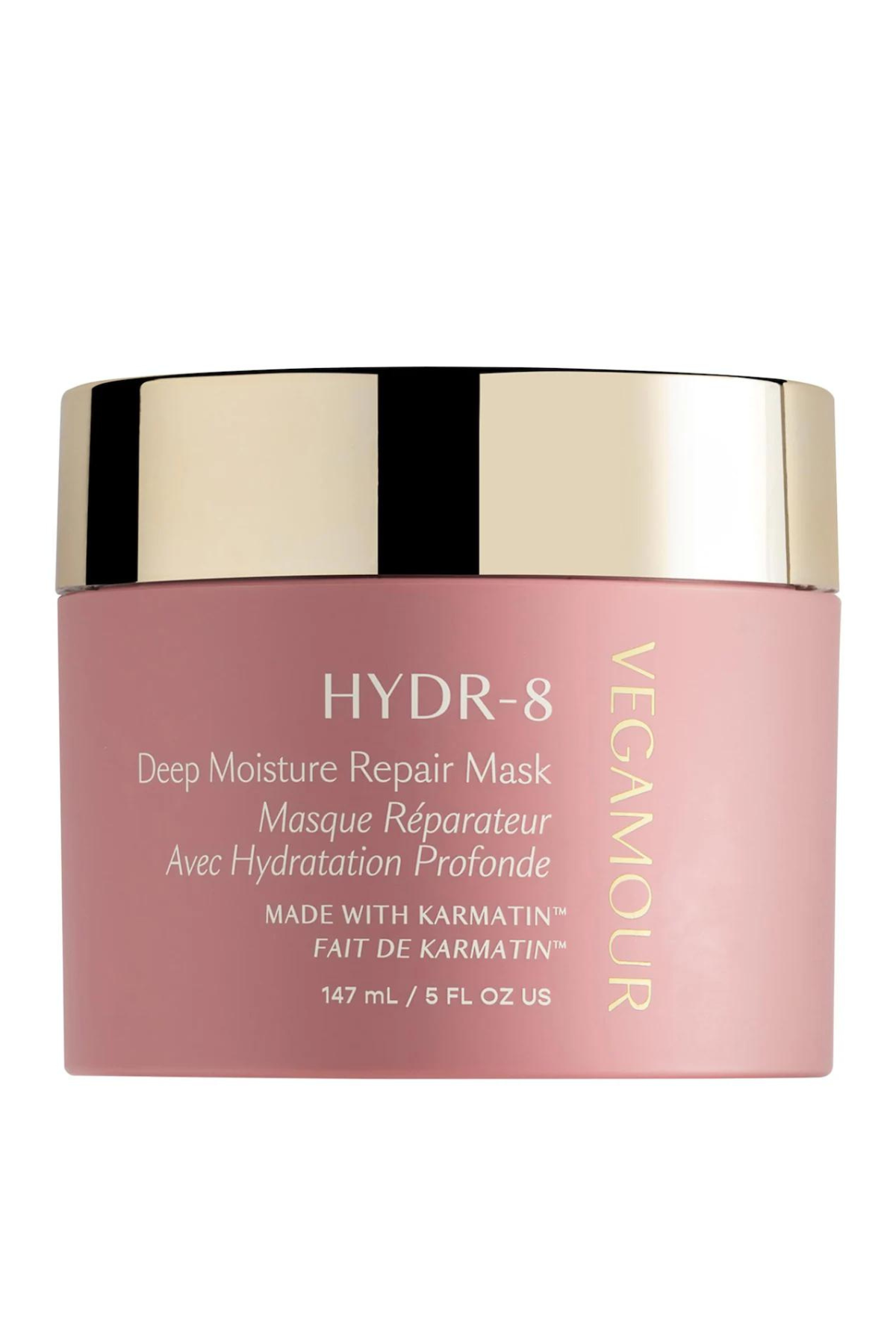
If you have fine hair, you know the hair mask struggle. After a few minutes of “repair,” you’re left with oily, flat roots that don’t recover for another three to five washes. Sound familiar? If it does, it's time to direct your attention to Vegamour. The brand, which is famed for its hair thickening abilities, created this ultra-hydrating mask that allows even the finest hair to remain weightless and voluminous.
Key Ingredients: Marula and moringa seed oil
Hair Type: All hair types
How Often to Use: Once or twice weekly
Fragrance Free: No
How Long to Leave In: Three to five minutes
What We Love: Great hydration without feeling greasy
What We Don’t: Slimy texture
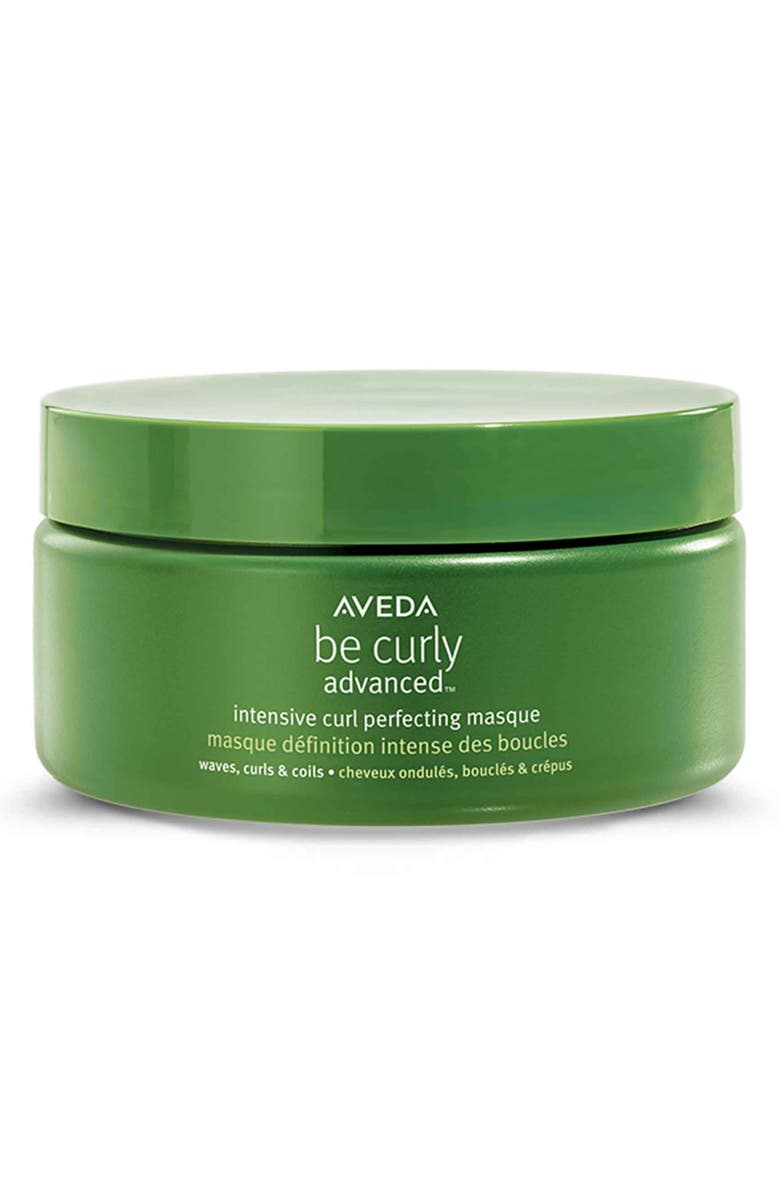
After lots of summer travel, the humidity and different climates have made my hair more prone to frizz and quicker to dry out post-wash day. I use this curl mask once to twice a week and always leave it on overnight (and sometimes, use it as my curl cream). It constantly produces the best definition for the crown of my head—an area that tends not to have a defined curl pattern—and shinier ends. Fun fact: the mask is guaranteed to smooth curls and coils by 85%.
Key Ingredients: Sunflower seed oil and jojoba oil
Hair Type: Waves and curls (2A-4C)
How Often to Use: Weekly
Fragrance Free: No
How Long to Leave In: 10 minutes to overnight
What We Love: Brings curls back to life
What We Don’t: Strong aroma
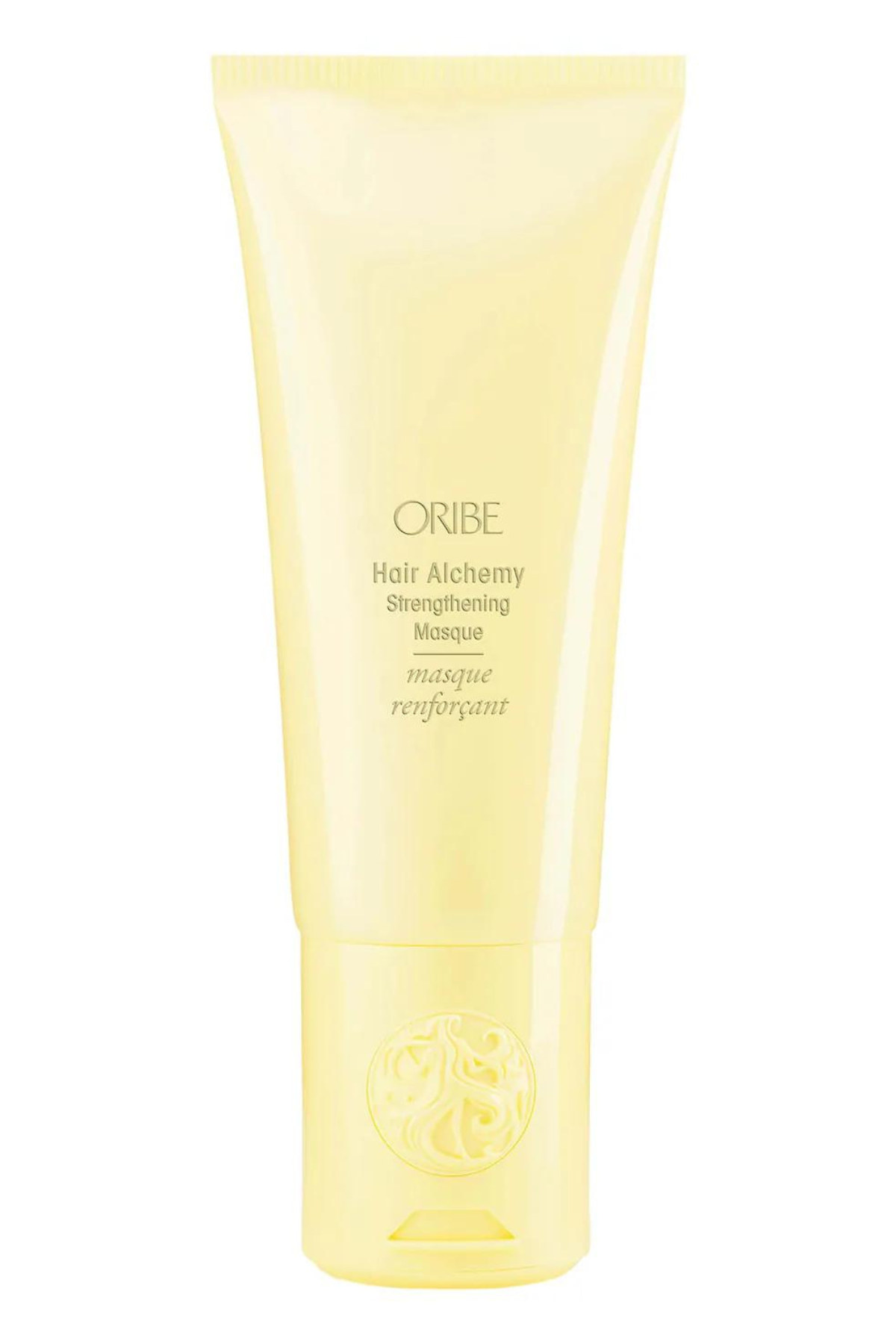
Oribe's sole goal is to make each hair strand more durable, stronger, and better able to withstand heat or styling-induced breakage. The mask can be used for 20ish minutes, but I like to load up (especially with my baby hairs), slick my hair back into a bun, and let the formula work its magic all day. Once I shower, my hair feels noticeably thicker and healthier. Plus, the salon smell can't be beat.
Key Ingredients: Watermelon and shea butter
Hair Type: All hair types
How Often to Use: Once or twice weekly
Fragrance Free: No
How Long to Leave In: As long as desires
What We Love: Prevents against future damage; smells great
What We Don’t: Cost
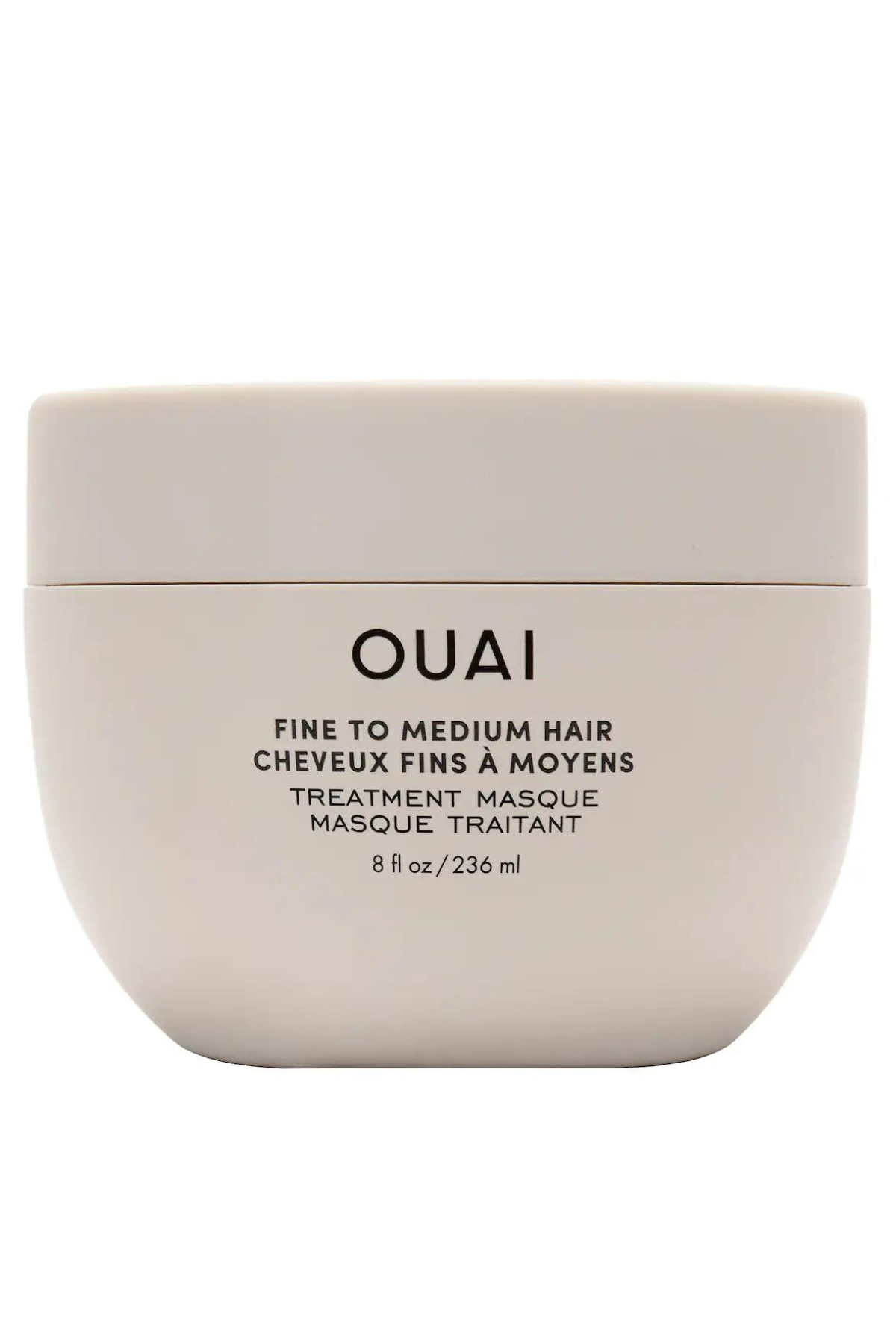
Very few products will work the same on fine, thin, straight hair as they will on curly, thick, coily hair. It’s *really* hard to formulate a hair mask to do it all. That is why the team over at Ouai decided to create a restorative treatment mask in different variations, each of which caters to a very specific hair type. The mask for thin hair won’t weigh anything down, whereas the mask for thick hair will provide adequate hydration. This product has become a cult favorite as a result—it really does what it says.
Key Ingredients: Shea butter, keratin and protein
Hair Type: Fine to medium thickness
How Often to Use: Weekly
Fragrance Free: No
How Long to Leave In: As long as desires
What We Love: Specialized treatment; restores hydration and shine
What We Don’t: Doesn’t leave hair extremely soft
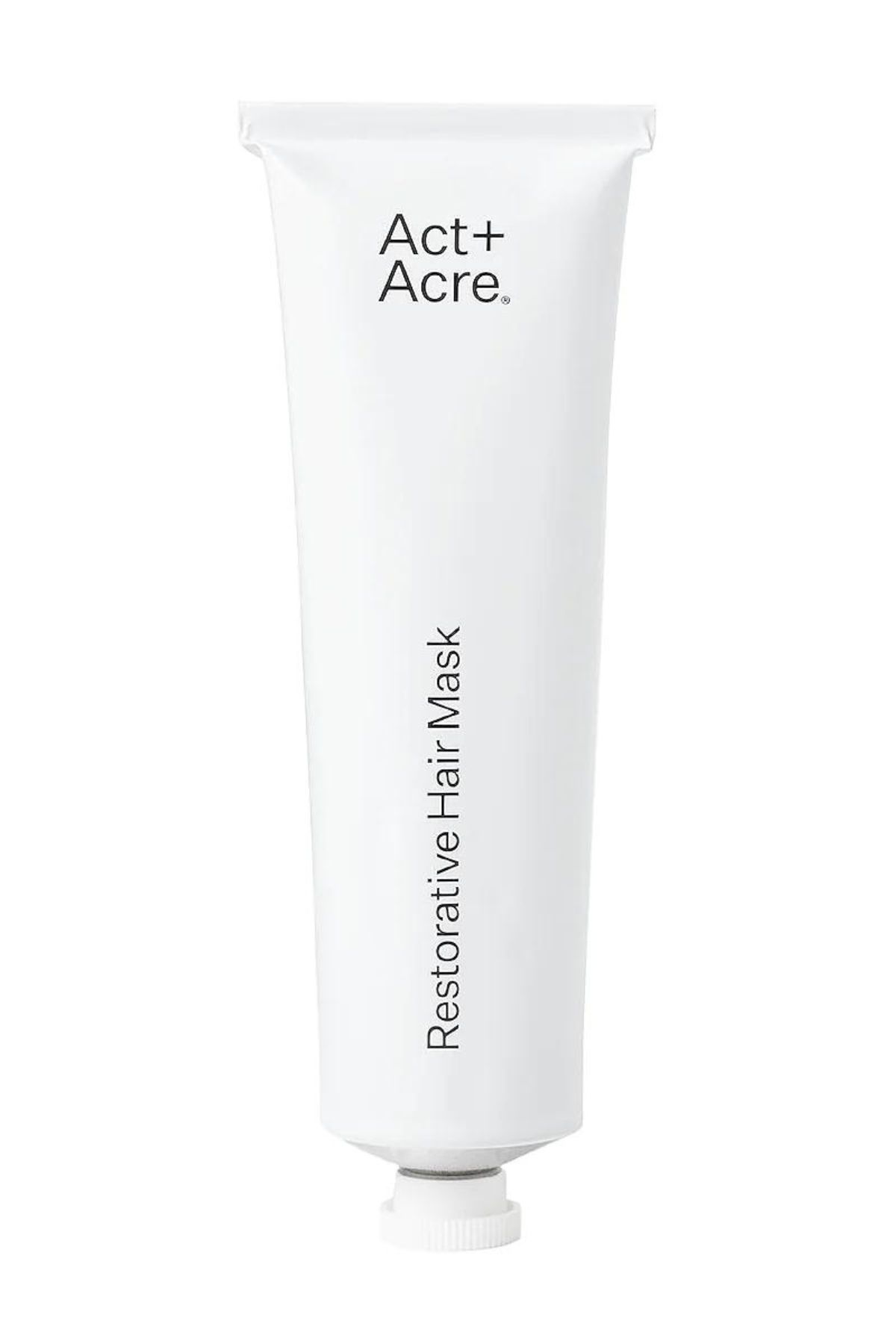
Act + Acre's hair products are the real deal. Case in point: this hair mask, along with the rest of the line, is infused with natural ingredients like castor oil and shea butter, which help with curl definition and support healthy hair growth. The formula also contains no shortage of fatty acids and proteins, meaning it effectively hydrates my driest, most dehydrated strands.
Key Ingredients: Seed oil
Hair Type: All hair types
How Often to Use: Weekly
Fragrance Free: No
How Long to Leave In: Five minutes
What We Love: Gentle scent; contains natural ingredients; vegan; free of sulfates, silicones, parabens, and phthalates; color-safe
What We Don’t: Price
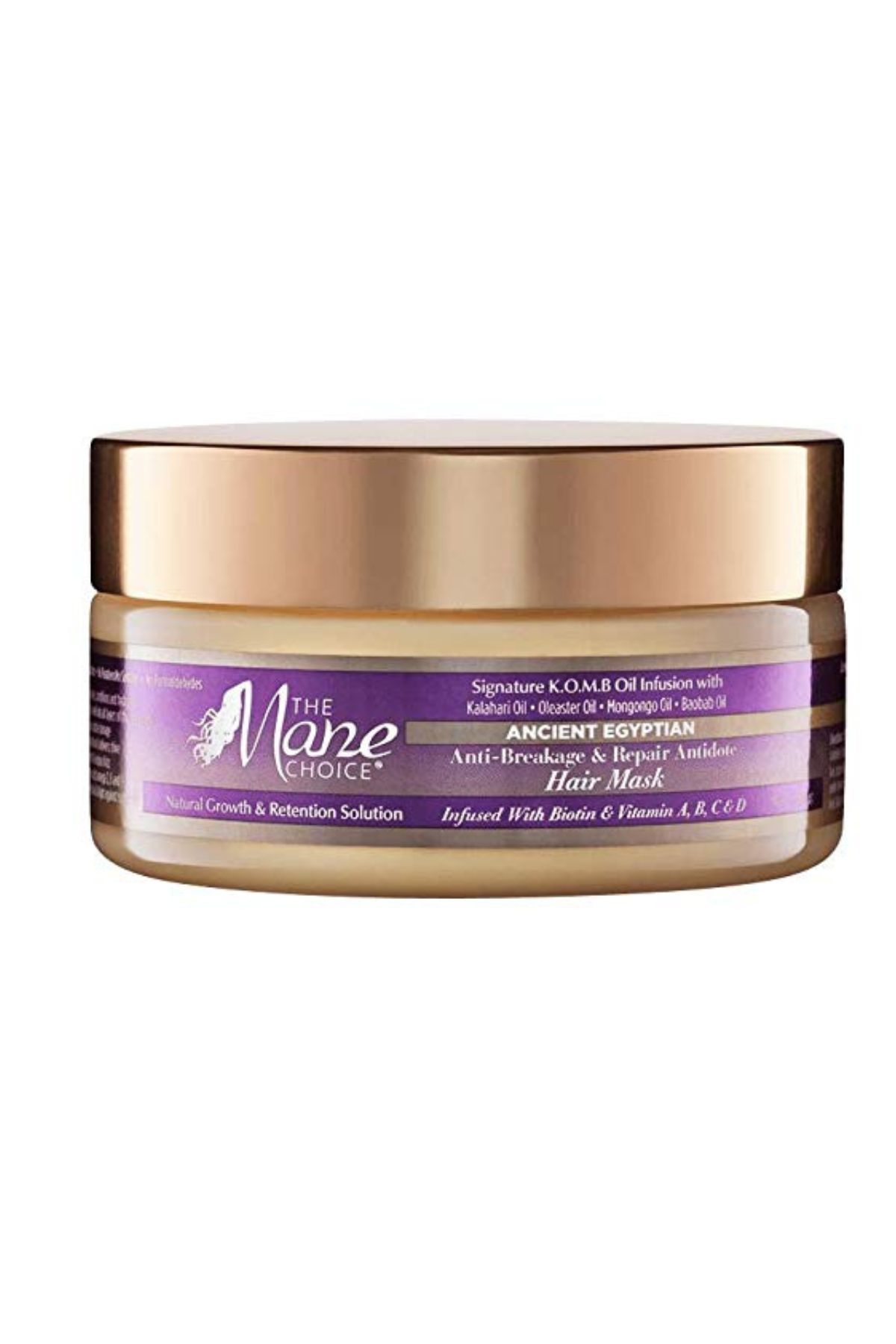
"The Ancient Egyptian Anti-Breakage Hair Mask leaves hair looking and feeling stronger overall," says natural hairstylist Cantaada James. "It nourishes, protects, minimizes breakage, and helps hair bounce back from damage. Hair that is prone to breakage and split ends, weak or damaged, will benefit greatly from this formula infused with kalahari oil, oleaster oil, mongongo oil, and baobab oil to strengthen, add shine, and help to repair hair strands."
Key Ingredients: Baobab and kalahari oil
Hair Type: All hair types
How Often to Use: Weekly
Fragrance Free: No
How Long to Leave In: Three to thirty minutes
What We Love: Can apply to wet or dry hair
What We Don’t: Strong scent
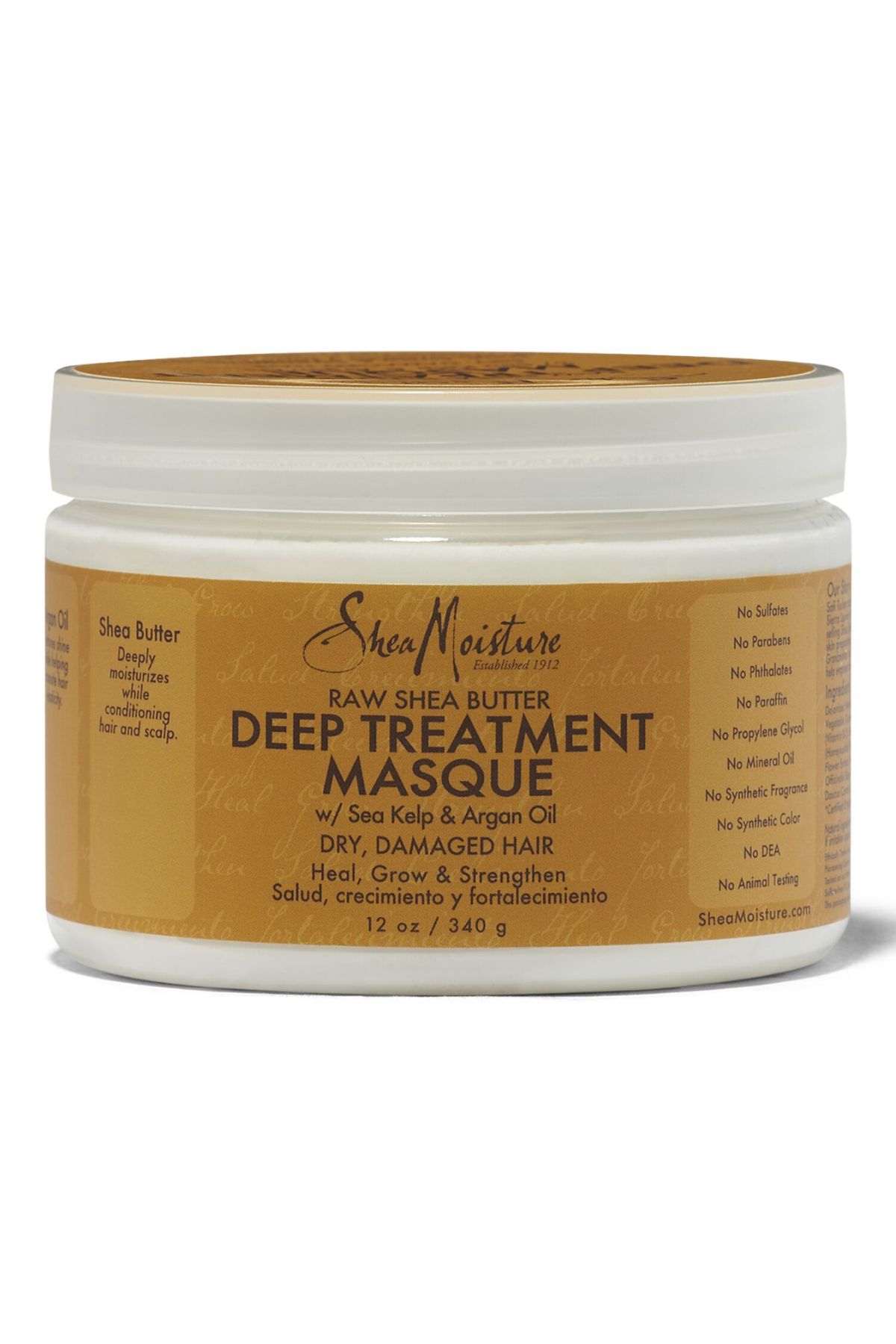
This treatment from SheaMoisture is my go-to—and should be for anyone with curly hair. It has a gentle scent and just the right thickness, so my hair immediately feels softer after each use. It also doesn't weigh down my curls. Instead, it strengthens them, hydrates my ends, and even helps bring my curl pattern back to life.
Key Ingredients: Shea butter
Hair Type: All hair types, great for curls
How Often to Use: Weekly
Fragrance Free: No
How Long to Leave In: Five to 15 minutes
What We Love: Affordable; immediate results; editor-approved; cruelty-free
What We Don’t: Strong scent
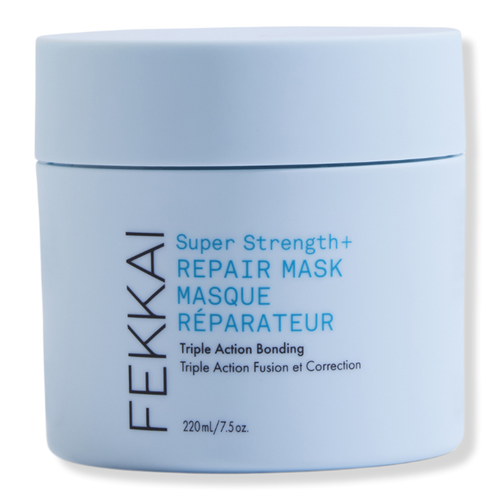
Known as the triple threat, this hair mask bonds, repairs, and protects damaged and dry strands. The creamy formula works well for all hair types and delivers intense hydration. The brand conducted third party clinical trials and can prove that with just one use, you'll have 70 percent less breakage, and hair that is three times stronger and four times smoother.
Key Ingredients: Coconut and jojoba oils
Hair Type: All hair types
How Often to Use: Weekly
Fragrance Free: No
How Long to Leave In: Three minutes to three hours
What We Love: Makes detangling a breeze
What We Don’t: Strong scent
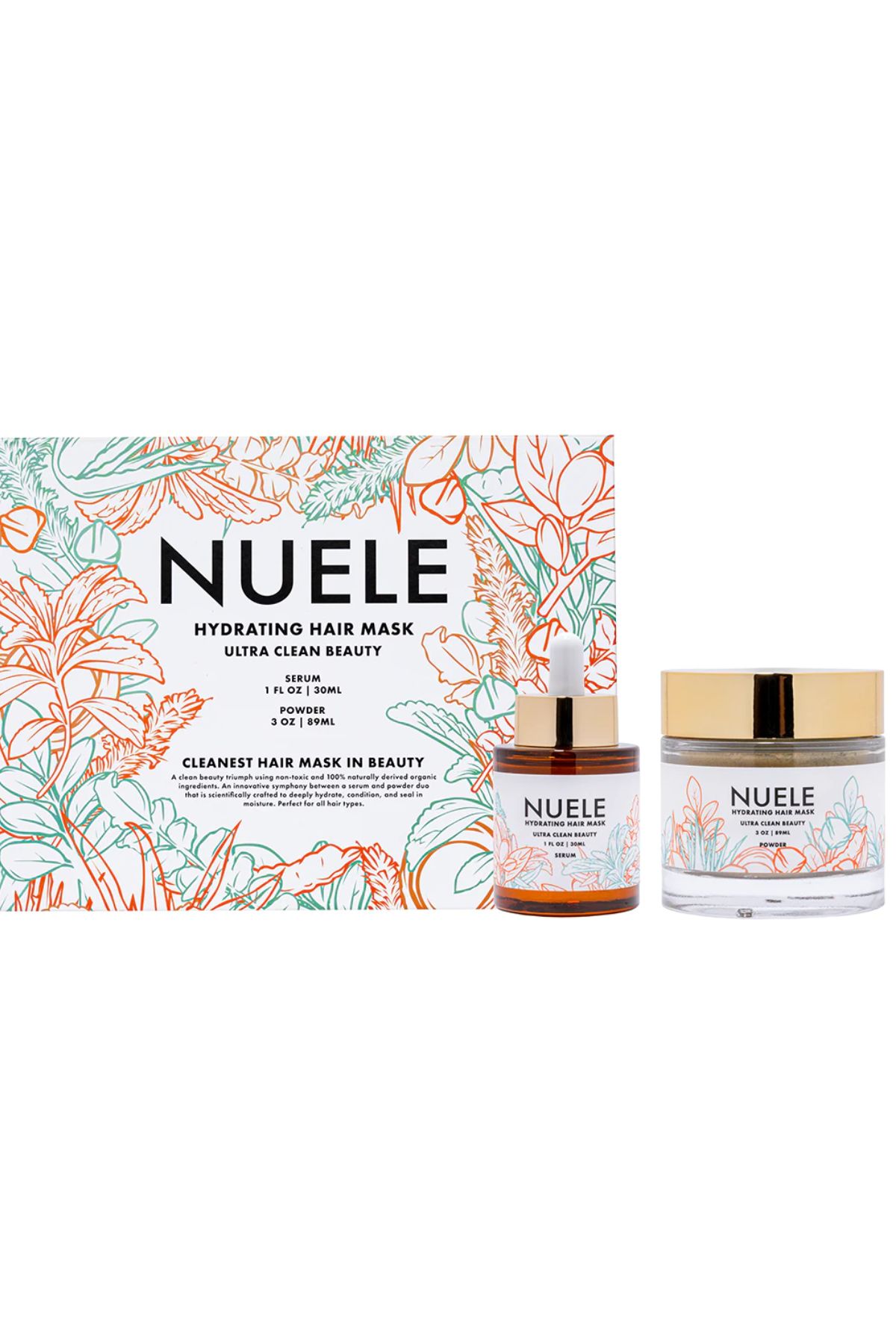
I love this unique mask from Nuele. It's made from natural ingredients and comes with two components: a serum and a powder. When mixed, the two create a rich mask that helps hydrate hair, detangle, and diminish frizz. It is a bit labor-intensive compared to other products on the list, but I notice such quick results that it's 100 percent worth it.
Key Ingredients: Jojoba oil
Hair Type: All hair types
How Often to Use: Weekly
Fragrance Free: No
How Long to Leave In: 30 minutes
What We Love: Clean; quick results; charitable brand
What We Don’t: Needs to be mixed before it's used
What to Look for in a Hair Mask for Damaged Hair
- Hydrating Ingredients
When deciding on what hair mask to incorporate into your routine, Sherry Stienessen, director of research and development at Demert Brands suggests looking for masks formulated with humectants (glycerin, shea butter, and honey are good ones), proteins, oils (castor, argan, jojoba, and avocado), fatty acids like coconut oil, and emollients like ceramides or moringa seed oil.
- Hair Type
To get the most out of your hair mask, consider your texture and hair goals when selecting your formula. New York City-based hairstylist Chiran Nakamura recommends creamier, reparative formulas for dry, brittle, or color-treated hair. Lightweight formulas, he says, are better for thin hair as they won't weight down your texture.
- Sulfate Free
Nakamura also advises sourcing sulfate-free products. “Sulfates can strip the hair and scalp of natural oils—leading to dryness,” she tells Marie Claire. “A sulfate-free mask helps maintain the natural moisture balance, leaving hair softer and less prone to breakage.”
Do I Need a Hair Mask?
While you don't necessarily need to mask, every hair type can benefit from the extra step. Celebrity hairstylist Chaz Dean explains that hair masks help provide extra strength, hydration, and smoothing to the hair cuticle. They're particularly useful if you have color-damaged, heat-damaged, or style-damaged hair.
How Often Should I Use a Hair Mask on Damaged Hair?
Depending on your hair's needs, hair masks can be used once or twice a week, biweekly, or monthly. All experts recommend checking the directions on your hair mask bottle and following them accordingly.
With that said, too much of a good thing isn't always better. You’ll want to avoid doing a mask more than twice a week as it can cause excess product buildup, oily-looking roots, and lackluster shine.
How Do I Apply a Hair Mask?
Although you’ll want to follow the instructions on the hair mask, you can generally apply one to clean, damp hair. Be sure to spread the product evenly, focusing mainly on the mid-lengths and ends, where the hair is the driest. Hayaska suggests either leaving the mask on for 10 to 15 minutes and rinsing out with cold water or, for dryer strands, keeping it on overnight and rinsing it out in the morning.
Can All Hair Types Use a Hair Mask?
Dr. Ashley Taylor, manager of hair care at P&G, says all hair types can use a hair mask. If you have thinner hair, opt for lightweight ingredients like jojoba oil. For thicker or textured hair, look for shea butter to provide shape and prevent frizz.
Meet the Experts
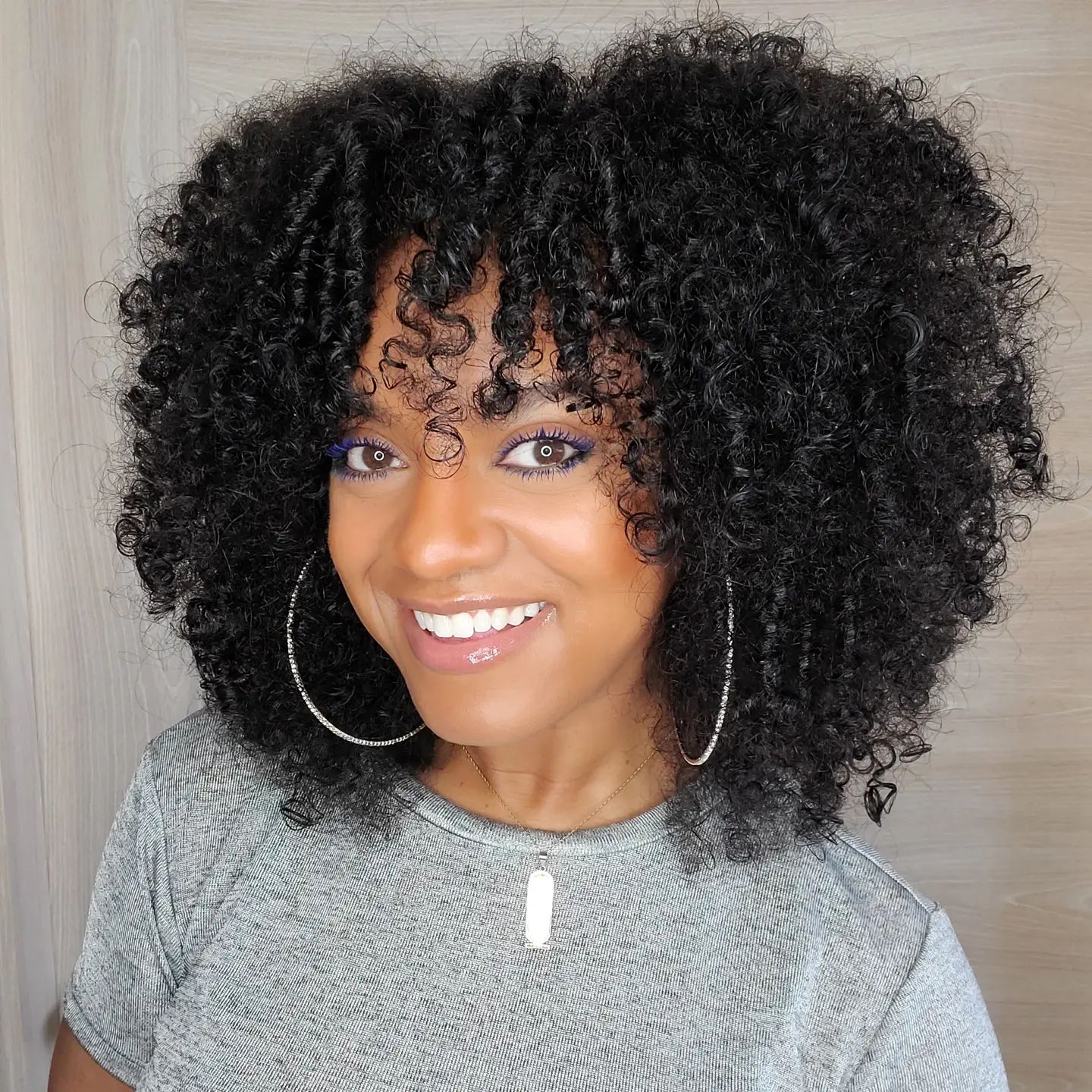
Cataanda James is a natural hairstylist and brand educator for The Mane Choice. Currently, she's based in New York City.

With a PhD in analytical chemistry and a specialization in surface chemistry and nanomaterials, today Ashley is a P&G Senior Hair Care & Research Development Scientist.
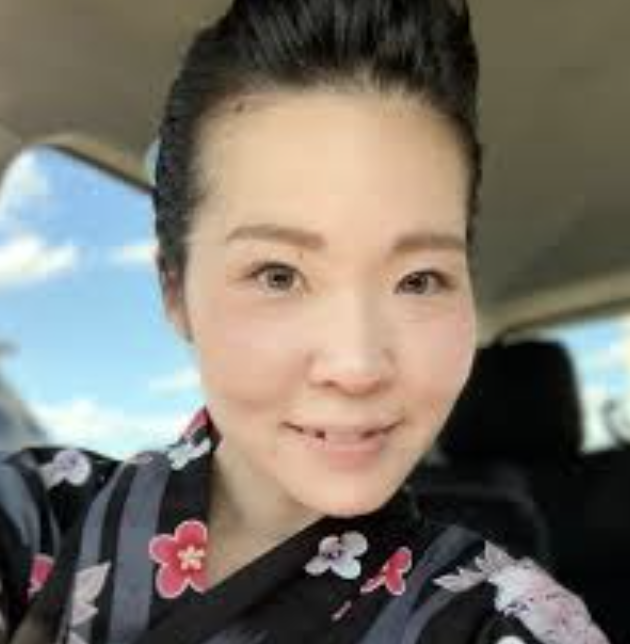
Chiran is hairstylist at Fekkai in New York City.
Get exclusive access to fashion and beauty trends, hot-off-the-press celebrity news, and more.

Natasha Marsh is a freelance writer covering beauty, fashion, wellness, travel, activism and sports. Prior to joining the contributor team at Marie Claire, she was the senior beauty editor at The Zoe Report and has also written for TheStrategist, InStyle, Cosmopolitan, Refinery29, POPSUGAR, Byrdie, Nylon, Beauty Independent and The Quality Edit. When she's not interviewing experts or reporting on personal stories, you can always find her doing her second favorite thing: traveling the world. Her current favorite cities she visited this year are Tokyo, Istanbul and Reykjavik.


